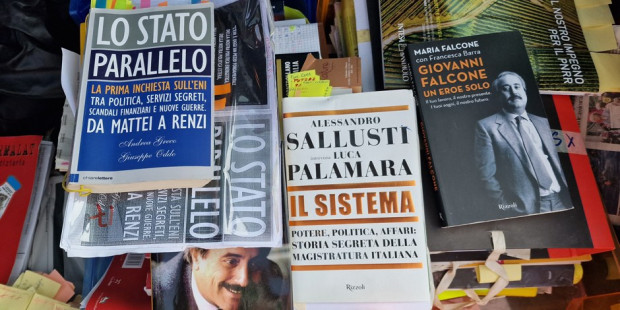Series (3): European money for the Mafia?
Today: The structures of organised crime in Italy - Mafia, N'Dragheta and Camorra. Functioning and changes in the strategy of these organisations that have taken place in recent decades.
(Kai Littmann) – The history of Italy is also the history of organised crime organisations. The first mafia structures emerged at the time of the Muslim conquest, when the Christian princes went underground to continue ruling their lands in secret. But it was not until the waves of emigration to the USA in the 19th century that these organisations became known outside Italy. “Mafia” is a general term and different, often regional groups and sub-groups characterise these structures to this day.
The three largest organised crime structures in Italy are the Sicilian “Cosa Nostra”, the Neapolitan “Camorra” and the “N’dragheta” in Calabria. Each of these underground organisations is divided into sub-groups and there are other regional and even local mafia groups.
Although the “Mafia” was initially a kind of peasant resistance organisation defending the interests of the poorest against the taxes imposed by the North after the integration of Sicily and Southern Italy to Italy, the criminal “career” of these organisations experienced an extraordinary boom after many Italians emigrated to the USA in the 19th century, especially thanks to alcohol prohibition, which allowed these organisations to become very influential and wealthy very quickly.
The strategy of all these organisations is to infiltrate all the influential and wealthy structures, i.e. the state institutions, the judiciary and the big companies. This situation still exists today and the omnipresence of mafia organisations is more than ever one of the greatest scourges of this beautiful country that is Italy.
The “mafia” has the power to appoint ministers and judges, it is involved in all major projects carried out with private and public money, and corruption is still the daily bread in Italy today. This state of affairs should alert the European Union, because many infrastructure and other projects are being carried out in Italy with European financial support.
Only a few decades ago, the various mafia groups fought bitter battles for power. Shootings, murders, kidnappings – the “mafia” spread fear and terror, but at the same time, this violence generated bad press. The murder of Judge Giovanni Falcone, of Paolo Borsellino and others in 1992 was to trigger a change in the strategy of these groups, as “Mafia hunter” Giovanni Falcone was very popular in Italy and the country was shocked by the murders.
Since then, mafia organisations usually avoid such spectacular acts of violence and concentrate on the economic aspect of their activities. Infiltration of politics, the judicial system and the economy allows access to public contracts and in many cases, yesterday’s enemies have become today’s partners, dividing the contracts among themselves.
In the case of the gas pipeline projects that interest us in this series, the involvement of mafia-like organisations is pervasive. Projects are awarded to companies, some of which are linked to these organisations; the legal system ensures that those responsible go unpunished and politics creates the framework in which these structures can operate unchallenged. The ones who suffer are those who want to work correctly and refuse to pay these structures.
Today, according to the Italian social science research institute “Eurispes”, the mafia-like organisations generate an estimated annual turnover of 140 billion euros, which is equivalent to 7.2 % of Italy’s GDP.
However, a handful of courageous judges and prosecutors fight these criminal structures at the risk of their lives. They are paying a high price as they are put under incredible pressure by politicians, who in turn protect these structures out of self-interest. The vote on 6 September in the Italian parliament to introduce a general amnesty for “upper class criminals” speaks for itself.
Given the machinations of organised crime in Italy, the European Union can no longer stand idly by while European taxpayers’ money finances these organisations in Italy. For infrastructure projects of such importance as gas pipelines, which contribute to the energy supply of a large part of Europe, it will be essential to put in place the necessary controls that would prevent some of this European money from continuing to finance organised crime. The European Union has the necessary means to prevent the financing of organised crime, only they must be implemented. Because Italy, and Europe too, deserve better than to be under the command of a criminal system that today, in a way, governs the whole country.
Already published in this series:


Kommentar hinterlassen